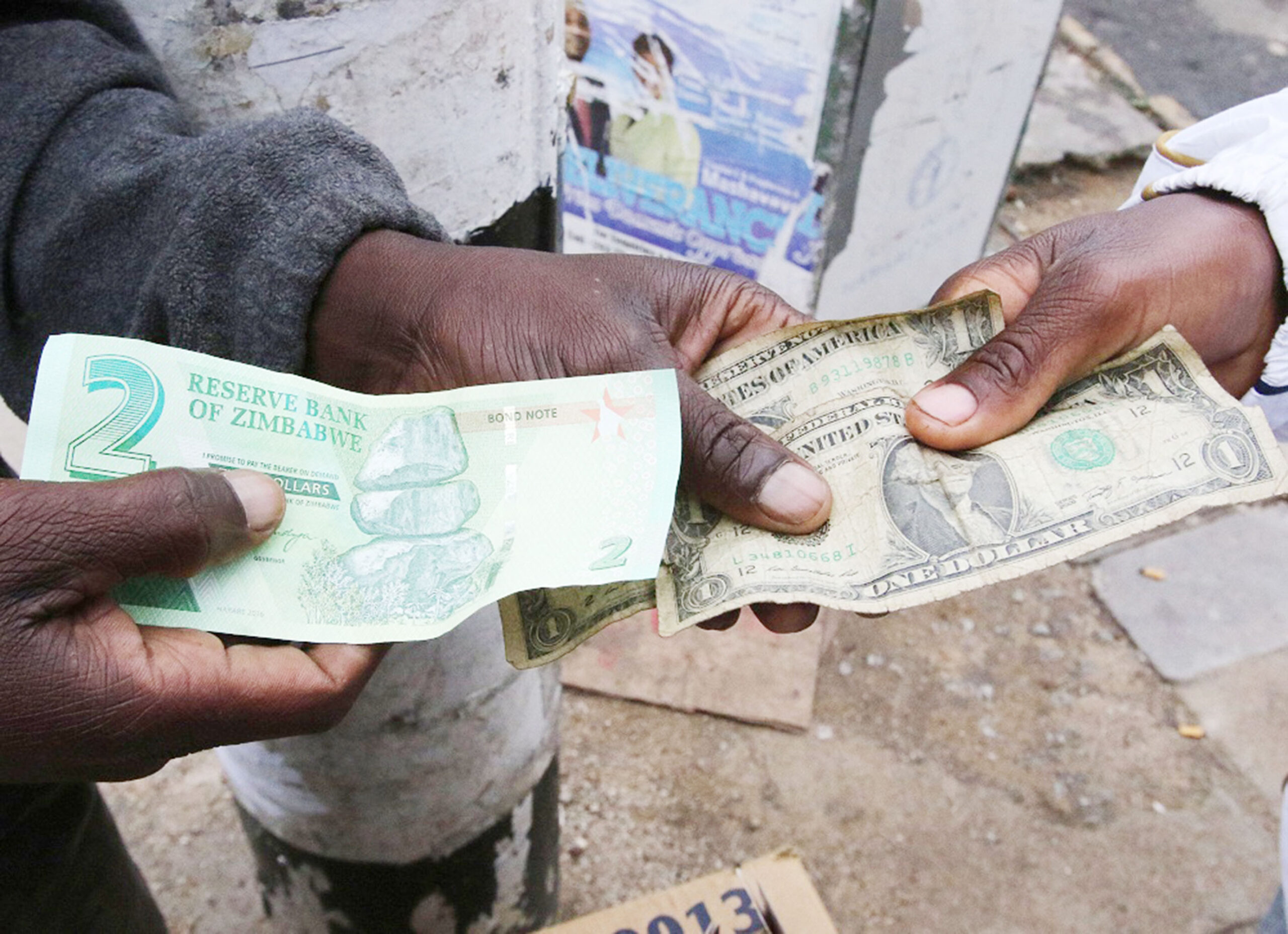Parallel market economy, a herculean challenge’
THE parallel market economy is difficult to completely eradicate because of lack of confidence in the macro-economic environment on the back of the past hyperinflation experiences the country went through before the adoption of a multi-currency system, analysts have said.
Zimbabwe adopted a multi-currency system in February 2009 before local currency was reintroduced in 2019.
Authorities are on record saying the country introduced local currency buoyed by macroeconomic fundamentals brought about by the two-year Transitional economic Stabilisation Programme (TSP), the Second Republic introduced in October 2018 to December 2020.
However, despite the economy having shown some signs of recovery and stimulating productivity in various sectors, such gains were being eroded by the recent development in the market where the exchange rate has become volatile.
For example, parallel market activities resurfaced following the introduction of the Zimbabwe dollar and in recent months, such a market has become a monster propelling exchange rate instability.
It is against this background that the Government has moved in to tame financial market distortions through such policies that seek to promote the convergence of the auction rate and interbank market rate introduced last month.
In separate interviews, economists said while all the economic fundamentals had been laid down , exchange rate volatility was being triggered by parallel market activities engendered by some delinquent individuals and businesses.
An economic analyst Professor Ashok Chakravat said: “On the macro-economic platform in terms of the fundamentals, the Government has done everything possible and even the IMF has approved and is very happy with the progress our Government has made in terms of the economic reforms.
“All l can say is that maybe it’s because of our history of hyperinflation and other problems such as lack of confidence or perhaps lack of cash.
“Such things take some time to heal and you know this is a very difficult question for an economist to answer as to why the parallel market can’t be eradicated completely.” At this week’s auction, the near convergence of the auction average and the interbank rate was maintained for the first time since the Reserve Bank of Zimbabwe (RBZ) auction system was launched in June 2019.
The auction average rate this week was $308,5201 above the interbank rate of $3901, 4994.
“For an economist this is very unusual to have a parallel market rate going like this and we have a foreign exchange situation.
“I think we need to be a bit patient, my own view is that if you look at the Government premiumatleast it has come down from over 100 percent a few months ago to the region
of 50 to 60 percent.
“So that is a positive sign and we will continue to do what is required to gain the confidence of the market and stabilise the economic situation,” he said.
Bulawayo-based economic commentator Sharon Mpofu, said the activity of the parallel market was due to delinquent behaviour of some individuals and businesses. She said such behaviour should be disregarded with all the contempt it deserves. “The parallel market activities are being initiated and ensued by some individuals and businesses with the ulterior motive of seeing this economy collapsing.
“Such acts, I also think, are being instigated by some political elements whose machinations are bent on creating economic turmoil ahead of next year’s general elections.
“This is clearly shown by the rate at which economic confusion has happened as exemplified by the rampant, wanton and unjustified price increases in the recent months,” she said.
In this context, Mpofu said the parallel market was thriving and therefore it would prove difficult to eradicate completely.
“In addition, people have lost confidence in the financial services market because of past experiences,” she said.
Financial market analyst, George Nhepera, echoed similar sentiments as Mpofu.
He added: “It’s a challenge within our economy just like any other challenge in the context that both economic and non-economic factors are still prevalent.
“I think the Reserve Bank of Zimbabwe (RBZ) has also said the parallel market is being determined by non-economic factors. So, until that factor is settled probably next year, we will continue to have the exchange rate on the parallel market unstable.
“Though economic fundamentals may be strong, the non-economic factors will remain a challenge and that is a huge contributing factor.”
Nhepera said he believes that after the general elections next year, the exchange rate will stabilise because by then there would be one Government in place determined by the people at that time.
In a recent interview, Dr Mangudya said the President has put in place measures to
stabilise the economy.
“The President was very clear in his statement on measures that he put in place for
stabilising the economy that the auction exchange rate was going to navigate towards the
willing buyer-willing seller so that there is a unification between willing buyer-willing
seller and auction rate so that there is no arbitrage.
“We have said many, many times again that our inflation in Zimbabwe is behavioural
inflation. The pass through effect of the parallel exchange rate is passing into the price of
goods and services and therefore, increasing inflation, which is behavioural inflation.
“And where is that behaviour coming from? We have said its coming from the past
experiences of hyperinflation and past experiences of dollarisation and added to that its
delinquent behaviour by certain persons or entities within our economy,” he said.- eBusiness Weekly










